Department News
"Education is the passport to the future,
for tomorrow belongs to those who prepare for it today."
— Malcolm X
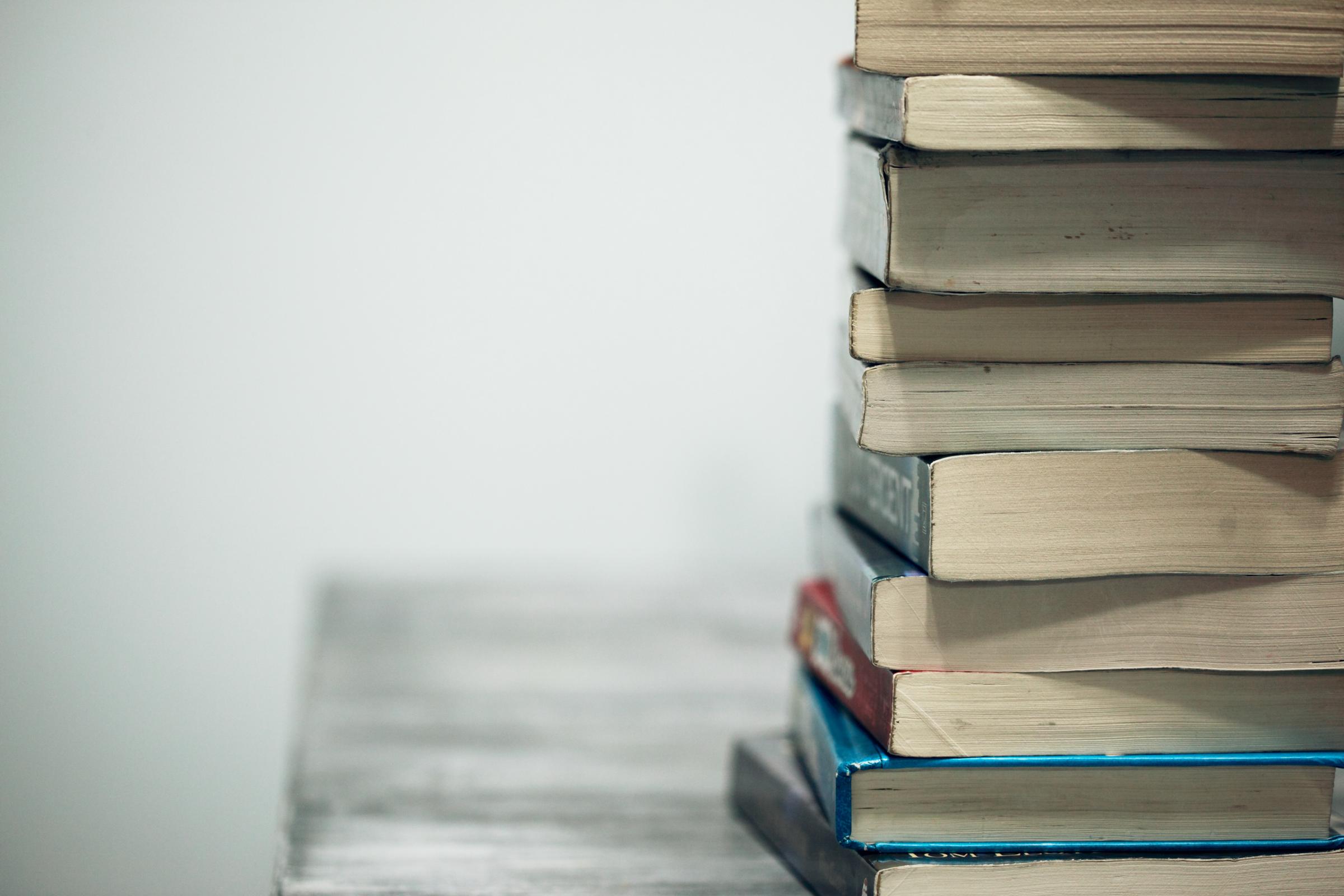
Department News
"Education is the passport to the future,
for tomorrow belongs to those who prepare for it today."
— Malcolm X
Sydney Catholic School Eisteddfod
Over the holiday, students from our elective Music classes competed as soloists in the Sydney Catholic Schools Eisteddfod. Congratulations to all the students who took part. It was a wonderful opportunity for the students to perform and get feedback from musicians around Sydney.
Congratulations to the following students who received awards:
Chloe Wong- High Commended- Piano Recital
Sienna Simons- 1st Place- Musical Theatre Solo
Klara James- Highly Commended- Musical Theatre Solo

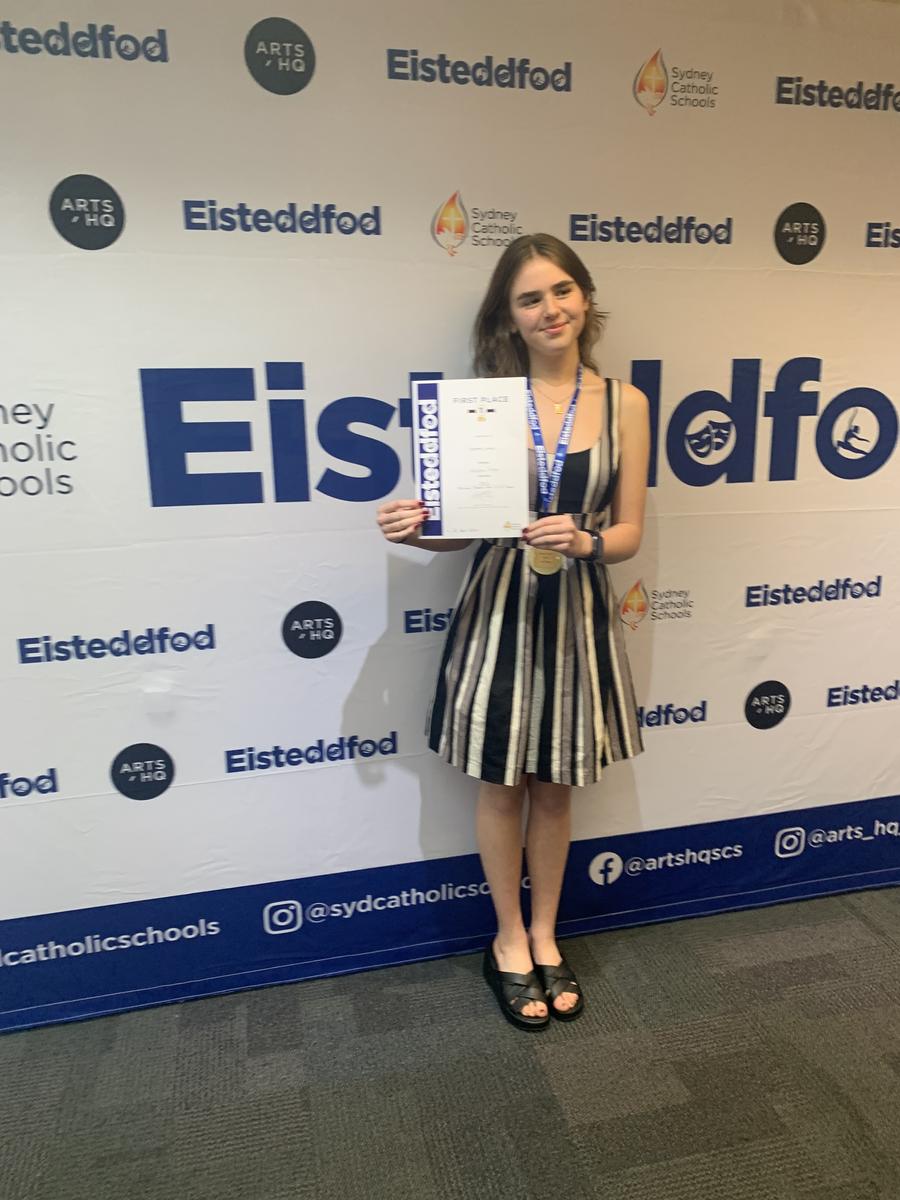


Last term our Year 12 and Year 10 Elective music classes performed at their first recital night for the year. We were treated to a range of wonderful performances from the students. We had some musical theatre, rock, jazz and classical pieces. Please enjoy listening to some snippets from the show below.
Video: Year 12 and Year 10, Elective Music Recital.
Our musical students have been working hard over the past term. Here is Molly Menzel from Year 12 telling us a bit about the experience so far:
“Over the last term, we have been excitingly working on this year’s school musical The Addams Family, where I have been fortunate enough to have been casted in the role of Morticia! During this time, we have spent Tuesday afternoons rehearsing and piecing together Act 1 of the show scene by scene, whether that be dancing, singing or acting. We’ve been really lucky this year to have such an amazing collection of cast mates, ensemble members and teachers who have allowed for these rehearsals to not only be a great and comfortable opportunity to improve our skills and create an entertaining show, but also a really open space to build friendships across all the year groups, and even other schools such as Marcellin and Corpus Christi. Along with these weekly rehearsals, where the cast and dance ensemble come together to practice the show, we also have orchestra and choir rehearsing both before and after school in preparation. In each of these ensembles, there has been a really exciting atmosphere continuing to bubble the closer and more confident we become in learning our parts. This term we are getting busier with preparation, with more rehearsals on a Sunday, introduction of stage crew to our rehearsals, costumes and set organising and the completion of lines, songs and dances, and we couldn’t be more thrilled. We are all very excited to perform this show early next term, and it is definitely going to be a show you don’t want to miss.”
Molly Menzel Year 12
Jacqueline Hanniffy
Head of Music
Practical Lessons
Our PDHPE programs are designed to empower students with the knowledge, skills, and attitudes vital for fostering healthy, safe, and active lifestyles.
Central to our approach is Physical Education, a dynamic component designed to foster physical activity, health, well-being, and fitness. Our curriculum encompasses a rich tapestry of activities spanning team sports, recreational pursuits, fitness regimens, and outdoor activities. These engagements are pivotal in developing an array of physical proficiencies, encompassing hand-eye coordination, balance, stamina, strength, and flexibility.
Beyond the physical realm, Physical Education extends its reach into the domain of mental well-being, offering a sanctuary for stress relief, mood enhancement, and the forging of meaningful social connections. As advocates for holistic well-being, we recognise the integral role our programs play in nurturing not just bodies, but also the minds and spirits of our students.
As we dive into Term 2, our PDHPE Department stands resolute in its commitment to provide PDHPE lessons that are inclusive and enjoyable for all students. By providing our students with exposure to a diverse array of physical activities, our goal is to ignite a passion for one or more of these pursuits, encouraging them to continue these activities into their adult lives.
Here is a glimpse into the programs awaiting our students in the realm of practical lessons:
Years 7 & 8
Year 7 and 8 PDHPE students will be completing a unit on Athletics, in preparation for our school athletics carnival. Here they will learn about the correct technique for high jump and athletics throws, such as shot put, discus and javelin. It is always great to see that the girls are keen to get points for their house at these events on carnival day.
Year 7 will venture out to Paine Reserve to participate in a practical unit on Team Games and our Year 8 students will engage in a unit on Fitness, where they will participate in numerous fitness activities, such as exercise circuits and various measurements of fitness. Fitness measurements will include the beep test for cardiorespiratory endurance, the Illinois agility run, standing long jump tests for leg power, the sit and reach test for flexibility, and further testing on reaction time, strength speed, balance and coordination. Participating in fitness assessments and benchmarking against age-related standards offers students valuable insights into their physical strengths and areas ready for improvement. This process empowers them to establish personal fitness goals and embark on journeys toward their fulfillment. We anticipate witnessing progress in the fitness endeavors of our Year 8 students by the end of Term 2!
Years 9 & 10
For the first time our Year 9 students will be venturing out of the school for their double PE lesson to attend the Heffron Centre! Located at Heffron Park, this indoor multipurpose facility includes a two court indoor sports hall for our dedicated PE staff to run Team Games such as netball, basketball, hockey or indoor futsal! We are excited to be running our Year 9 PE lessons in such a state-of-the-art facility!
In addition, our Year 10 cohort will also travel beyond the school premises for their double PE session, heading to the Heffron Park Netball Courts to get active and develop their netball skills whilst interacting with their friends.
Years 9 and 10 PASS Elective Courses
Our 200 Hour 9 PASS students and 100 Hour Pass elective students will be participating in the practical unit ‘Recreational Pursuits’, which will correspond with the unit of work they will be studying in class called ‘Lifestyle Leisure and Recreation’. Here the students will be provided with opportunities to participate in lifelong recreational and leisure pursuits such as pilates, table tennis, croquet and tennis to challenge the perceptions they hold about the value of leisure and recreation activities as viable and rewarding forms of physical activity.
Another group of students embarking on an off-campus adventure for their practical lessons are our Year 10 PASS elective cohort. We're thrilled to introduce a new water polo unit to be conducted at UNSW! Here, the girls will delve into the intricacies of water polo, mastering skills such as passing, dribbling, and goal shooting. We eagerly anticipate their acquisition of these new proficiencies, with the ultimate aim of applying their newly learnt skills into a game situation. Water polo is a physically demanding sport that provides a range of physical benefits that can help young athletes improve their strength, coordination, and overall fitness. We hope our Year 10 PASS students share our enthusiasm for this exciting addition to the PASS curriculum!
Years 11 & 12 PDHPE
As we head towards the end of the semester, our Year 11 & 12 PDHPE and CAFS students will be preparing for their upcoming assessments.
Our Year 12 PDHPE students recently delved into a workshop led by our dedicated PDHPE staff. This session served as an invaluable chance to reinforce their understanding of the curriculum thus far, and they enthusiastically embraced the activities devised by their teachers. Looking ahead, the CAFS workshop awaits our Year 12 cohort this term, promising another enriching experience that we're confident they'll find immensely beneficial.
We wish them all the best as they study and prepare over the coming weeks.
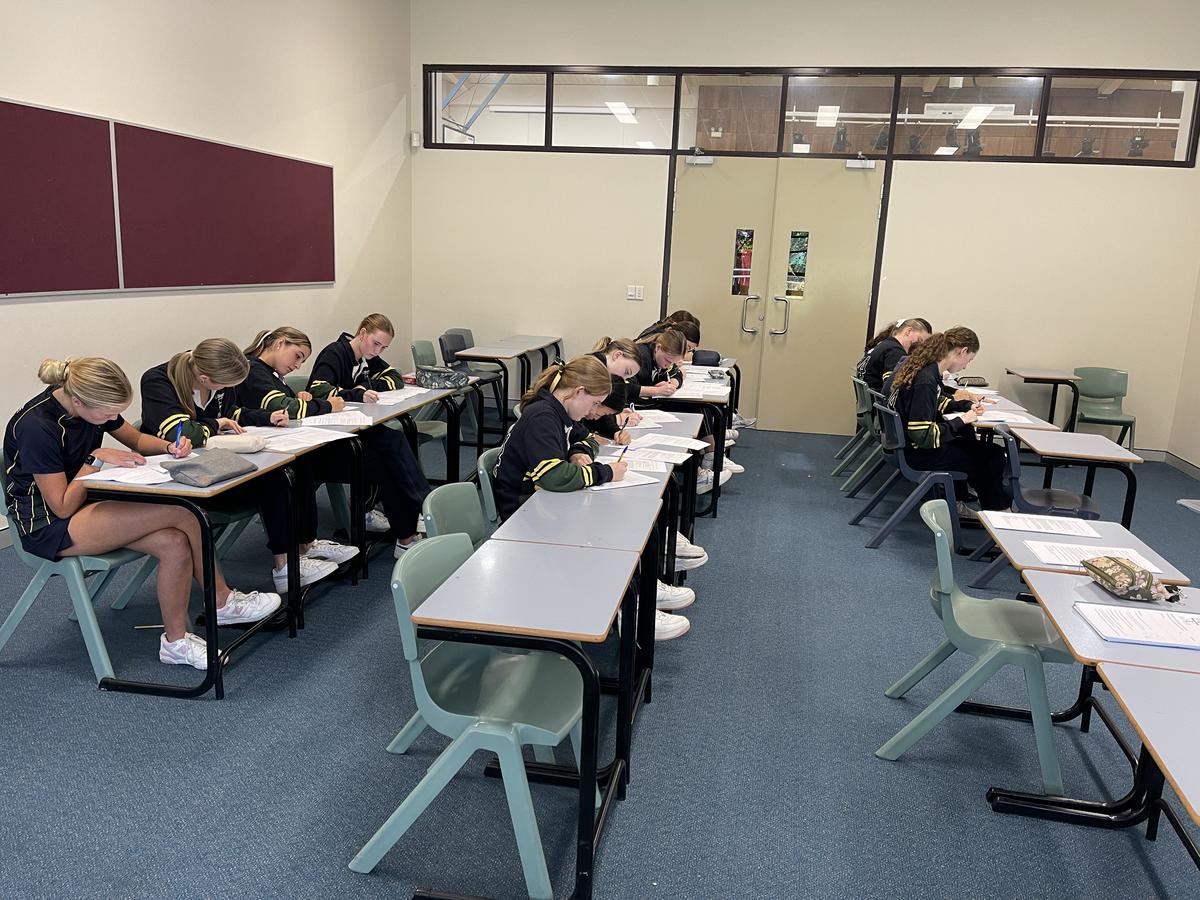
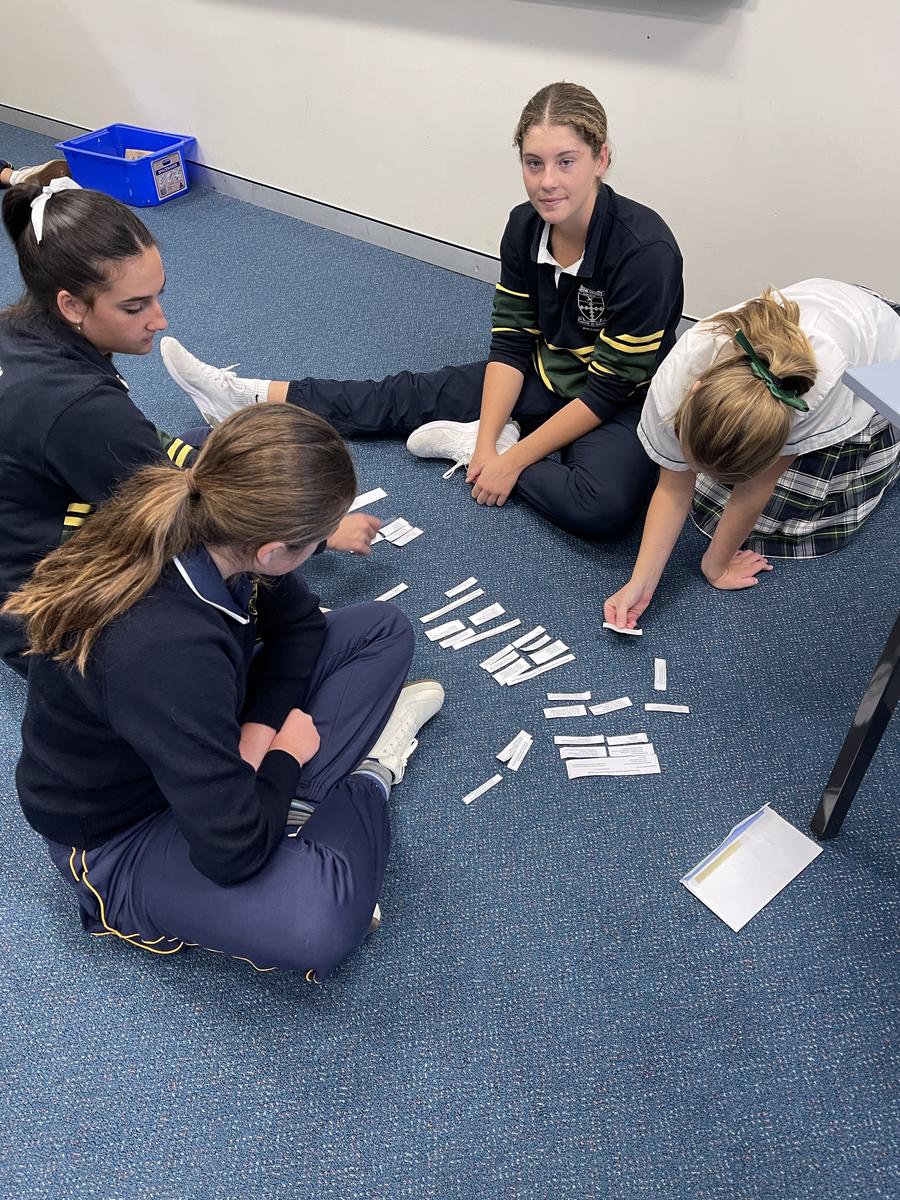
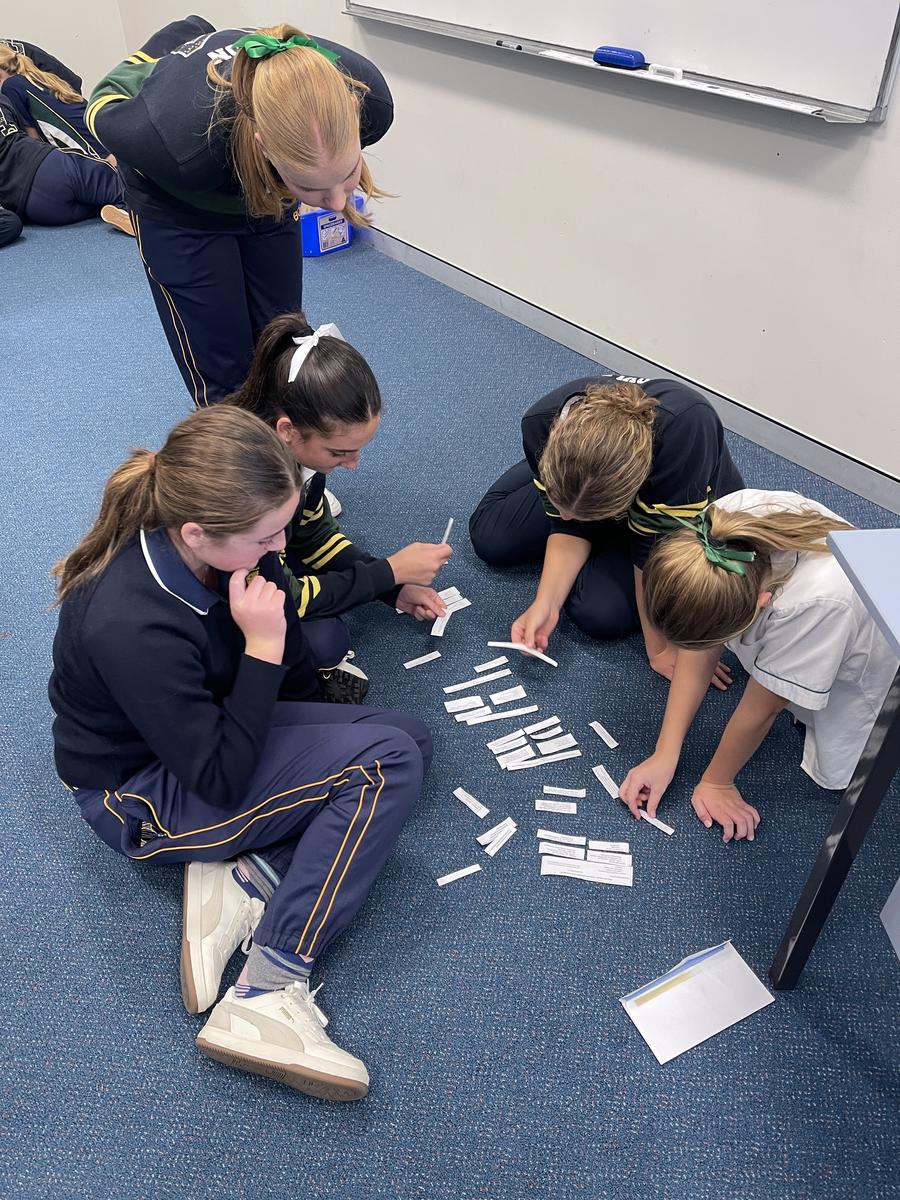
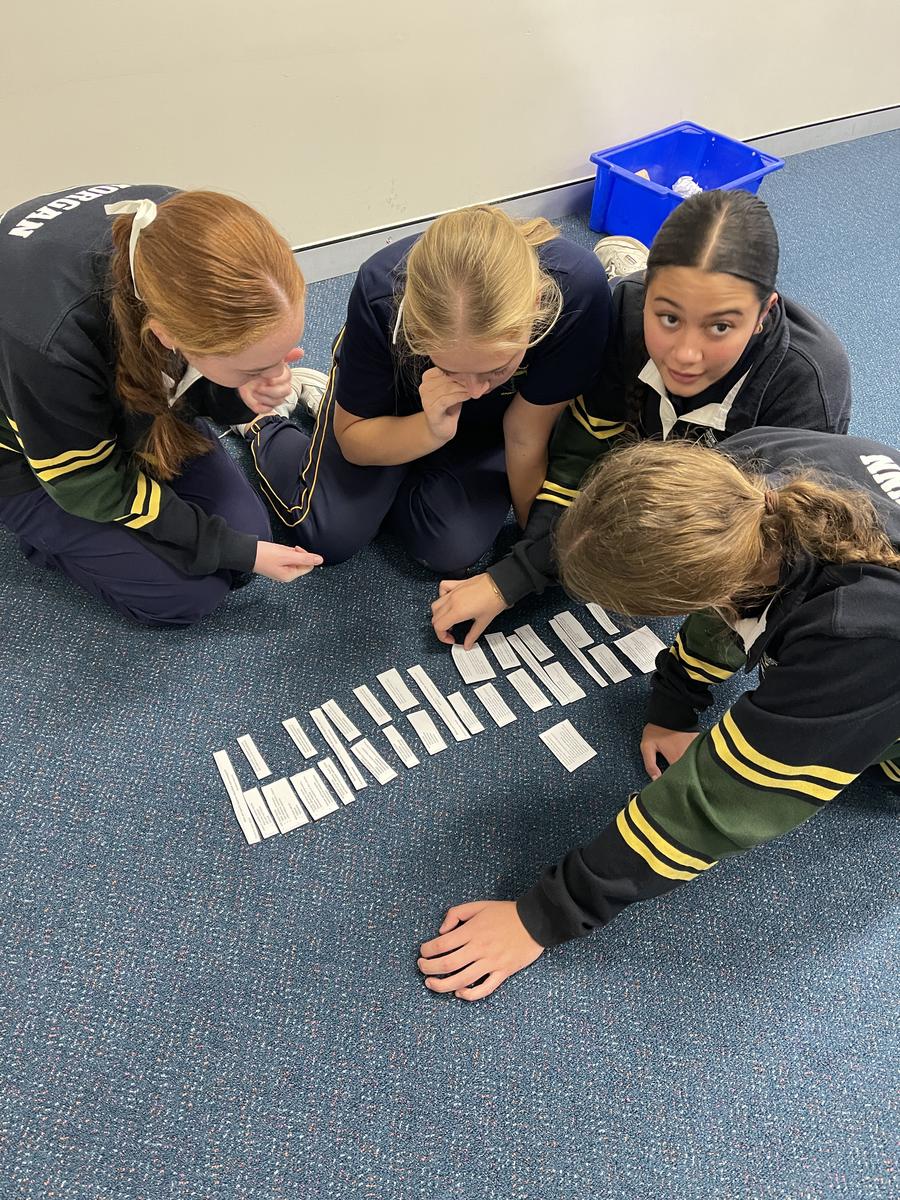
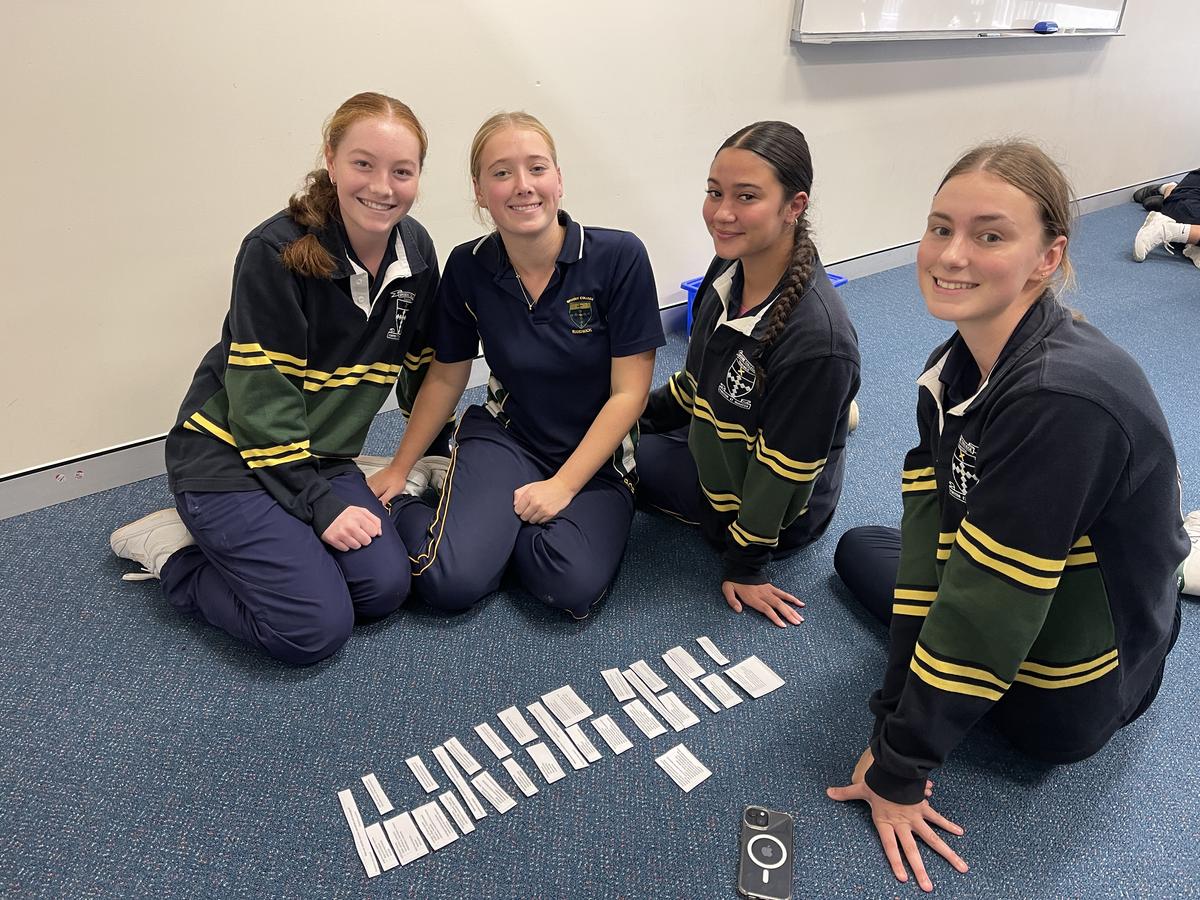





Our Much loved and experienced PDHPE Teacher, Mrs. Kate Elder was delighted to attend the Sydney Catholic Schools Award Ceremony for her student, Caitlin De Andrade, who achieved second place in the state for Community and Family Studies and first place in Sydney Catholic Schools in the HSC last year. It was a touching gesture from Caitlin to have her teacher present on this occasion, and we are immensely proud of Caitlin and Mrs. Elder for Caitlin's outstanding achievement.
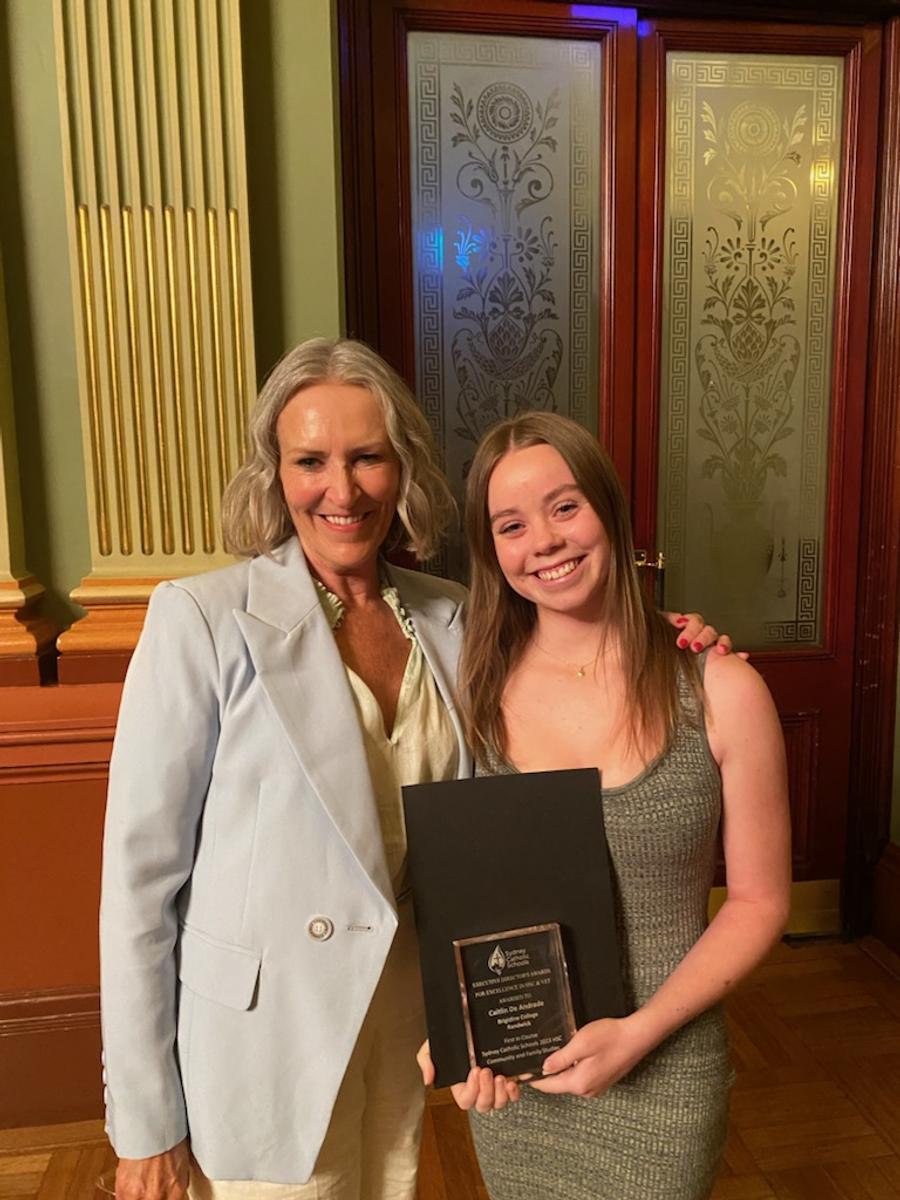

Vanessa Culhane
Head of PDHPE
Focus on Chinese
Our Year 8 students are currently learning Chinese. Let’s take this opportunity to consider why the study of Chinese is so important for Australian students.
Here is what some of our Year 8 students have to say about learning Chinese:
Hi my name is Chloe and I have just started learning Chinese this year and already want to do it next year as one of my electives because I love it. I believe it is important to learn Chinese as mandarin is a very popular language used all over the world. It would also be very useful to know mandarin, because if you meet up or come across a person who only speaks mandarin it would be helpful to the other people around if you could translate what they are saying. I love doing Chinese instead of Italian because I feel like it is a great opportunity to be able to zoom in with someone all the way from China and to hear it from someone who has the accent as well and that we can still understand her english. I also love doing Chinese this year because on the days we don't have zoos with our teacher Nikki in China she has set us work to do so we know what we have to do on those days and aren't left doing nothing.
Hi my name is Rebecca and this is my 5th year doing chinese, l think it's important to do Chinese because my background is Chinese, not just that but also because it is one of the most widely spoken languages in the world. As more mandarin speakers come to Australia it will be useful to be able to communicate with other people from a different background or country, learning another language also helps improve memory and creativity, l enjoy learning chinese because l would like to learn more about my language and my background in general.
My name is Issy and I've been learning Chinese since the start of year 8. I think it's important to learn another language because it's better for communication when you travel, it's good for your english and it actually improves your brain development. I enjoy the challenge of learning Chinese as it is very different from how the English language is structured and it's fun trying to figure out how to write or pronounce a word.
My name is Erin Hescott and I've been learning Chinese since the beginning of year 8. I believe it's important to learn Chinese because international businesses usually hire people who can speak more than one language. Australia is also a very multicultural country making Chinese a popular language. It can also be for your own benefit when traveling overseas making it easier to communicate with others. I really enjoy doing the zooms in chinese. It's definitely a very fun and interesting way to learn. I think the zoom classes we have are a very important part of Chinese because it lets the students be able to experience different varieties of teaching skills. I also enjoy trying a new language with my friends as it makes really good memories.
Anahid and Imogen
We have been learning Chinese for a term now, immersing ourselves into the zoom lessons from our teacher who lives all the way over in China. We do not do it just to learn Chinese, but to enjoy the different diversities of the world and experience new things. It is crucially important to learn other languages because of the many advantages it gives you. Learning other languages is essential in the world, it is important to communicate and enjoy the other places. We are able to learn about the culture and how different it is to our culture. It is a great experience and gives us more opportunities later on in life. In Chinese, we enjoy learning the different kinds of perspectives in their culture. When learning it, we find a deeper connection and communication to other places in the world. Our favorite part of learning Chinese is especially getting to try and have Chinese conversations with our peers and friends.
Eve:
I’ve been learning since the start of year eight. I think Chinese is an important language to learn because there are many Chinese people visiting and living in Australia. Learning a new language would be helpful, if you ever met someone who could not speak English. It helps your brain development, and would give you skills for future employment, and just traveling to different places in general.I enjoy learning chinese because it gives me a chance to communicate in different ways, and sometimes even gives you a different perspective of things and lets me learn about different cultures and connections.
Alisa Nguyen: I have been learning Chinese ever since I have joined this school :)) I think it's important to learn because we especially live in a multicultural country. The Chinese language is also the top three spoken languages, knowing that it would be great to learn the language so that we would be able to help others that don't understand English. I enjoyed the new experience of learning off Zoom and my peers helping each other get into the Zoom. It really brings out the best in everyone helping each other out.
Sara Botte:
Hey, I'm Sara! I just started learning Chinese, and I'm already hooked. I'm thinking of taking it again next year because I'm loving it so much. Mandarin is super important since it's spoken all over the world. Plus, being able to translate for someone who only speaks Mandarin could be really helpful.
I'm choosing Chinese over Italian because it feels like a cool chance to connect with people from China and understand their culture better. Our teacher, Nikki, who's in China, keeps us busy even on days when we don't have live classes. It's great because we always have something to do and don't end up bored.
Neve Lynch: I have been learning Chinese since year one in primary school up until now. I believe that it’s important to learn Chinese or another language because it can open up opportunities for jobs and university but also helps you communicate with other people who speak Chinese or any other language. Something I enjoy while learning Chinese is being able to speak to other people such as peers fluently and feeling accomplished.
We are Penelope Fleming and Isabel Nino Neville. We have both been learning Chinese for different amounts of time. Penelope has been learning Chinese since kindergarten. Isabel has been learning Chinese since year 8. We both agree that it is important to learn other languages because it helps you communicate in life and opens up many opportunities. As Chinese is the most spoken language in the world it is important to know key characteristics of the language. This will help you communicate when traveling in China and speaking fluently with locals. We enjoy the spark you get when you understand different words, paragraphs, sentences and characters. When you know that you can speak another language let alone Chinese you feel smarter and educated. That feeling makes you feel more confident communicating.
Nathalie and Jenifer : We have been learning Chinese since the beginning of year eight but we are differently familiar with the language. For example Nathalie is part Chinese, so she has been exposed to Chinese culture before, while Jenifer had only ever started learning this year. We both think it is mainly very important to learn this language, not just because it is the most spoken language in the world, but because lots of Chinese citizens immigrate to Australia without knowing a single word, and it would be important if we could communicate with them and make them feel welcome.
We enjoy the fact that we have the opportunity to learn a new language, especially with different ways of writing, different sounds and different traditions to learn about.
By being familiar with this language, it will improve and expand our education to another level and keep us open minded. There are many more reasons why we chose Chinese, such as knowing new things that we can talk about with different cultures.
Charlotte: I’ve been learning Chinese on and off since primary school. I think it’s important to learn Chinese because it is one of the most spoken languages in the world as well as giving you more opportunities in life, as well as Australia being a multicultural country. Job employers often look for people who can speak another language so they can deal with customers from all around the world. Learning another language is also good when you are travelling. I enjoy learning Chinese because I do it with my friends and learn a new language which I can speak while traveling.
Bianca Grilli: I have been learning Chinese since the start of year 8. Learning Chinese is very important to me because I have family from Asia and I want to connect with them more. Chinese is important to learn because it helps with your brain development and world wide skills. Chinese is also a very hard language because it is one of the hardest languages in the world but also one of the most commonly spoken. I enjoy learning Chinese because I think that it is a very cool language and will help me take a further step into my learning journey.
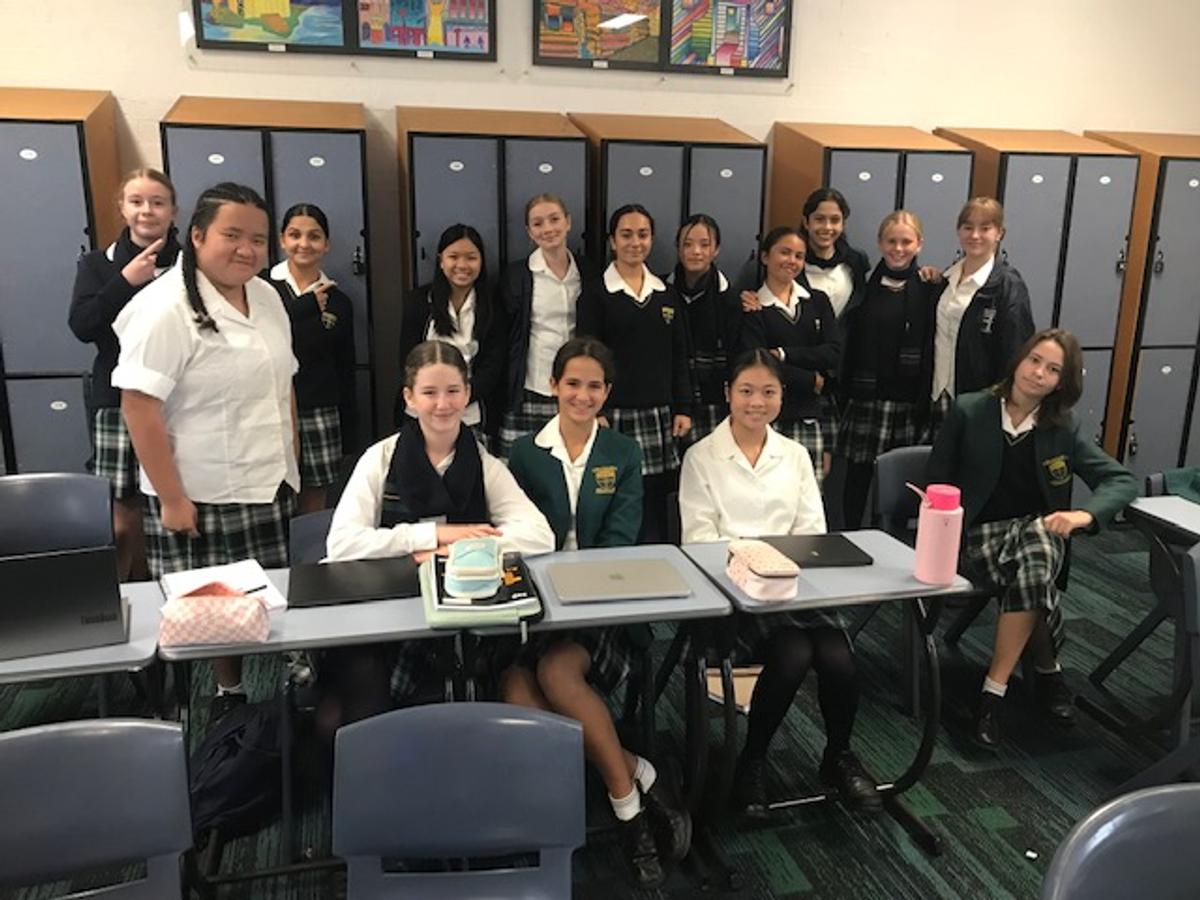

Janine Christofides
Head of Languages
Art Club (Term 2, 2024)
Every Wednesday (at Recess) → starting Week 2, Term 2
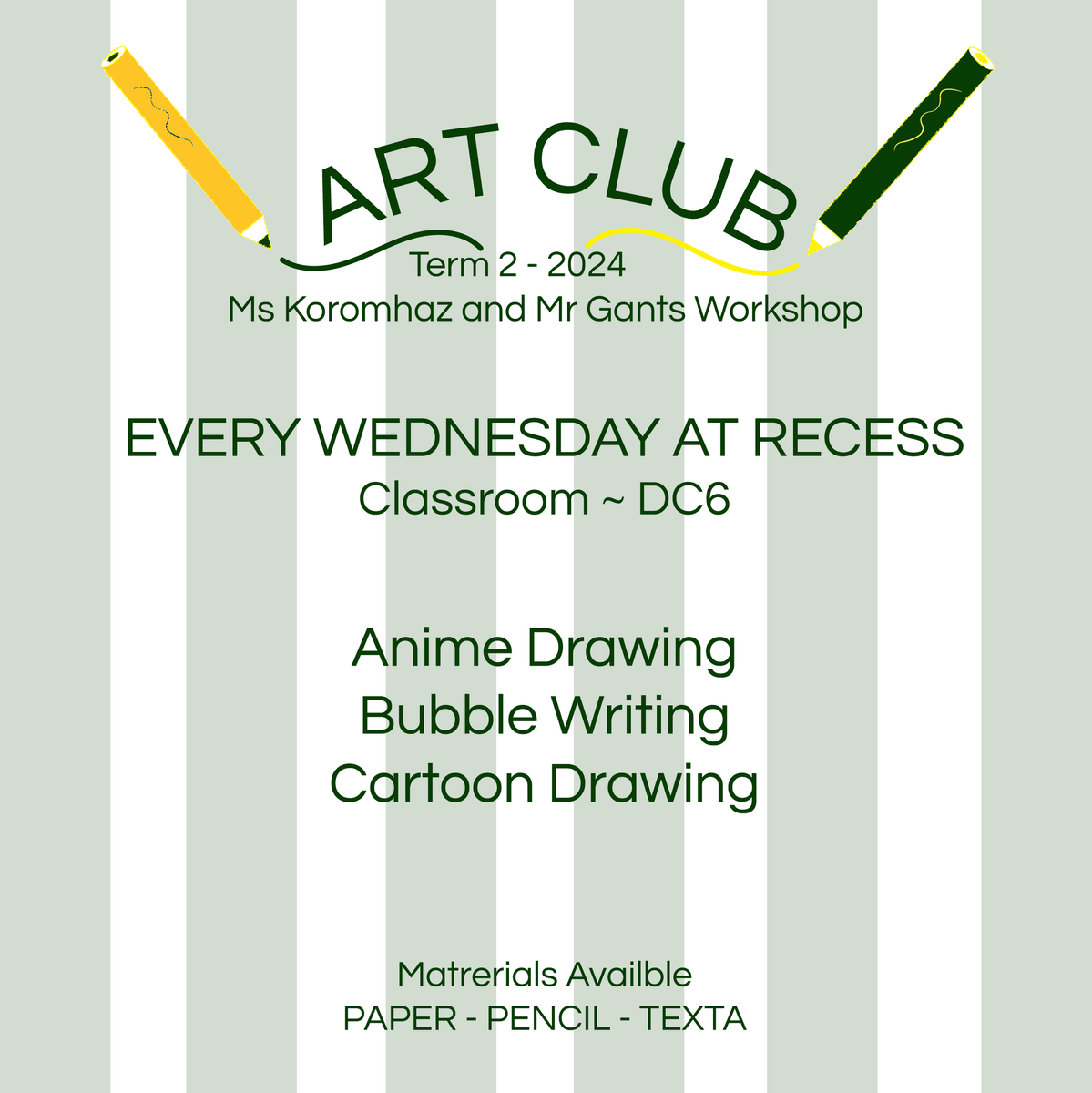

Ms Koromhaz and Mr Gant will be supervising every session.
Ms Koromhaz and Mr Gant will run a small workshop focusing on cartoon drawings, bubble writing, anime drawing (students can decide if they want to participate or do their own work).
The materials that will be available for Term 2 are paper, pencils and textas.
Adam Gant
Visual Art & Technology Teacher